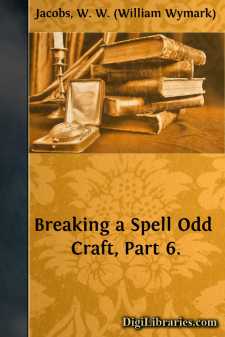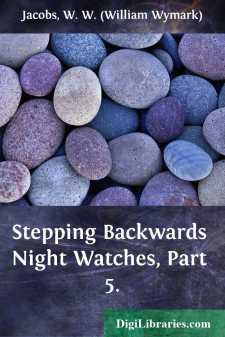Categories
- Antiques & Collectibles 13
- Architecture 36
- Art 48
- Bibles 22
- Biography & Autobiography 813
- Body, Mind & Spirit 142
- Business & Economics 28
- Children's Books 15
- Children's Fiction 12
- Computers 4
- Cooking 94
- Crafts & Hobbies 4
- Drama 346
- Education 46
- Family & Relationships 57
- Fiction 11828
- Games 19
- Gardening 17
- Health & Fitness 34
- History 1377
- House & Home 1
- Humor 147
- Juvenile Fiction 1873
- Juvenile Nonfiction 202
- Language Arts & Disciplines 88
- Law 16
- Literary Collections 686
- Literary Criticism 179
- Mathematics 13
- Medical 41
- Music 40
- Nature 179
- Non-Classifiable 1768
- Performing Arts 7
- Periodicals 1453
- Philosophy 64
- Photography 2
- Poetry 896
- Political Science 203
- Psychology 42
- Reference 154
- Religion 513
- Science 126
- Self-Help 84
- Social Science 81
- Sports & Recreation 34
- Study Aids 3
- Technology & Engineering 59
- Transportation 23
- Travel 463
- True Crime 29
Salthaven
Description:
Excerpt
CHAPTER I
MR. JOHN VYNER, ship-owner, pushed his chair back from his writing-table and gazed with kindly condescension at the chief clerk as he stood before it with a handful of papers.
"We shall be able to relieve you of some of your work soon, Hartley," he said, slowly. "Mr. Robert will come into the firm next week." The chief clerk bowed.
"Three years at Cambridge," resumed Mr. Vyner, meditatively, "and two years spent up and down the world studying the business methods of other nations ought to render him invaluable to us."
"No doubt, sir," said Hartley. "It is an excellent training."
"For a time," said the ship-owner, leaning back and placing the tips of his fingers together, "for a time I am afraid that he will have to have your room. Later on—ha—if a room should—ha—fall vacant in the building, we might consider taking it."
"Yes, sir," said the other.
"And, of course," resumed Mr. Vyner, "there is one great advantage in your being in the general office which must not be overlooked; you can keep an eye on the juniors better."
"It is cheerful, too, sir," suggested the chief clerk; "the only thing—"
"Yes?" said Mr. Vyner, somewhat loudly.
Mr. Hartley shrank a little. "I was going to say that it is rather a small room for Mr. Robert," he said, quickly.
"It will do for a time," said the other.
"And—and I think I told you, sir, that there is an unpleasant sm—odour."
Mr. Vyner knitted his brows. "I offered to have that seen to, but you said that you didn't mind it," he remarked.
"Just so, sir," said Hartley; "but I was thinking of Mr. Robert. He might not like it; it's very strong at times—very strong indeed."
"You ought to have had it attended to before," said Mr. Vyner, with some severity. "You had better call at Gillows' on your way home and ask them to send a man up first thing to-morrow morning."
He drew his chair to the table again, and Hartley, after lingering a moment, withdrew to his own room.
Ten out of his thirty-five years of service had been passed there, and he stifled a sigh as he looked at the neat array of drawers and pigeon-holes, the window overlooking the bridge and harbour, and the stationer's almanac which hung over the fireplace. The japanned letter-rack and the gum-bottle on the small mantelpiece were old friends.
The day's work completed, he walked home in sober thought. It was a pleasant afternoon in May, but he was too preoccupied to pay any heed to the weather, and, after informing a man who stopped him to tell him that he had lost a wife, six children, and a right leg, that it was just five minutes past six, resumed his way with a hazy idea of having been useful to a fellow-creature.
He brightened a little as he left the bustle of the town behind, and from sheer force of habit glanced at the trim front-gardens as he passed. The cloud lifted still more as he reached his own garden and mentally compared his flowers with those he had just passed.
His daughter was out, and tea for one was laid in the front room. He drew his chair to the table, and taking up the tea-pot, which the maid had just brought in, poured himself out a cup of tea....












